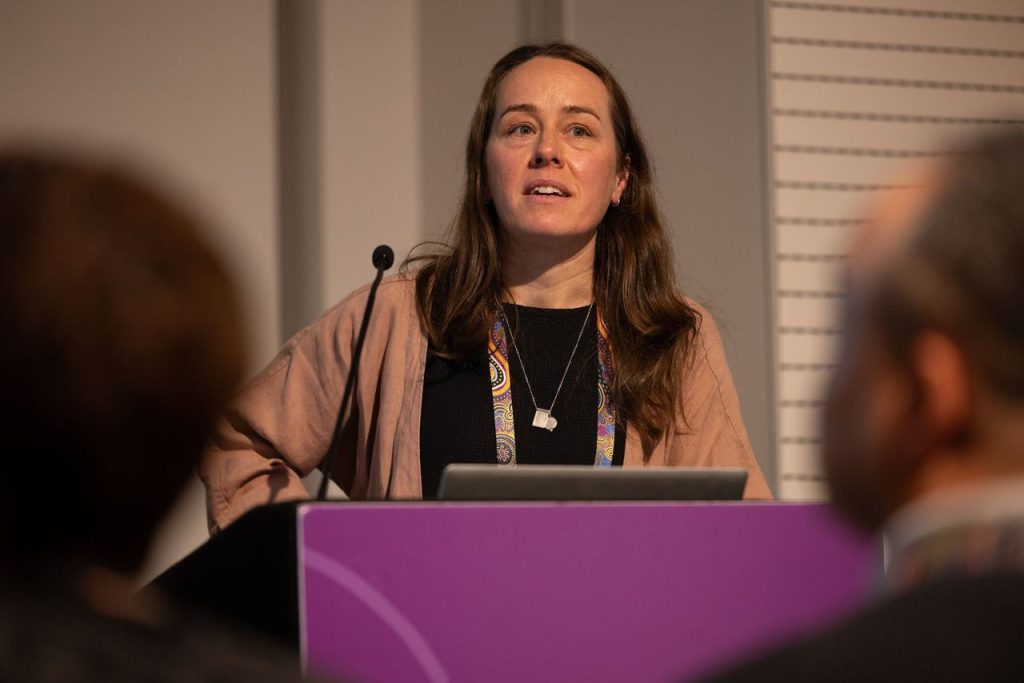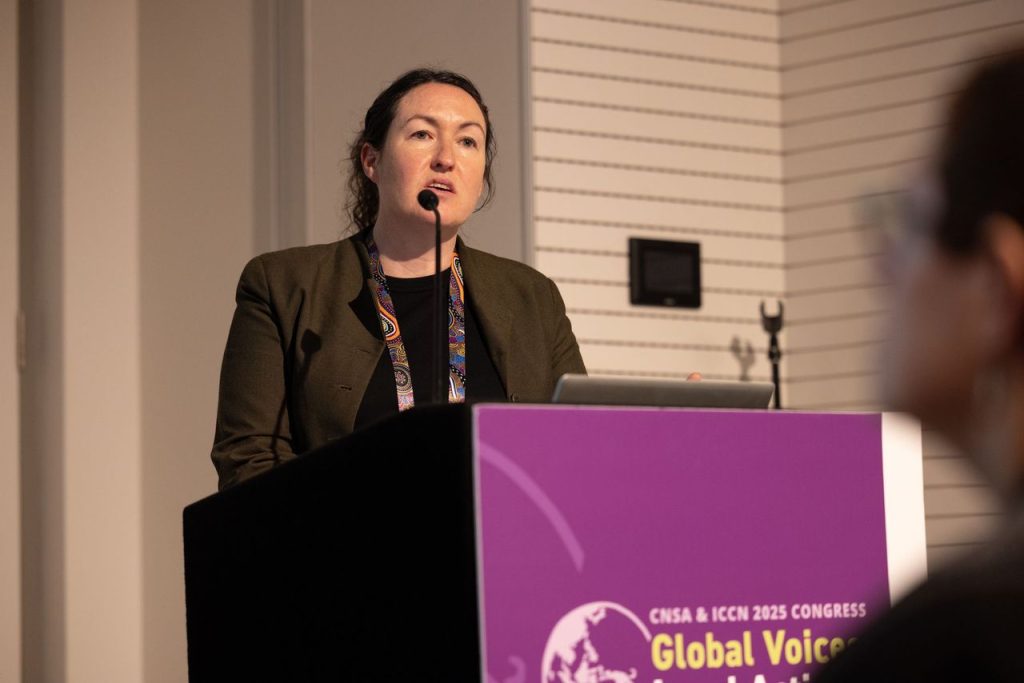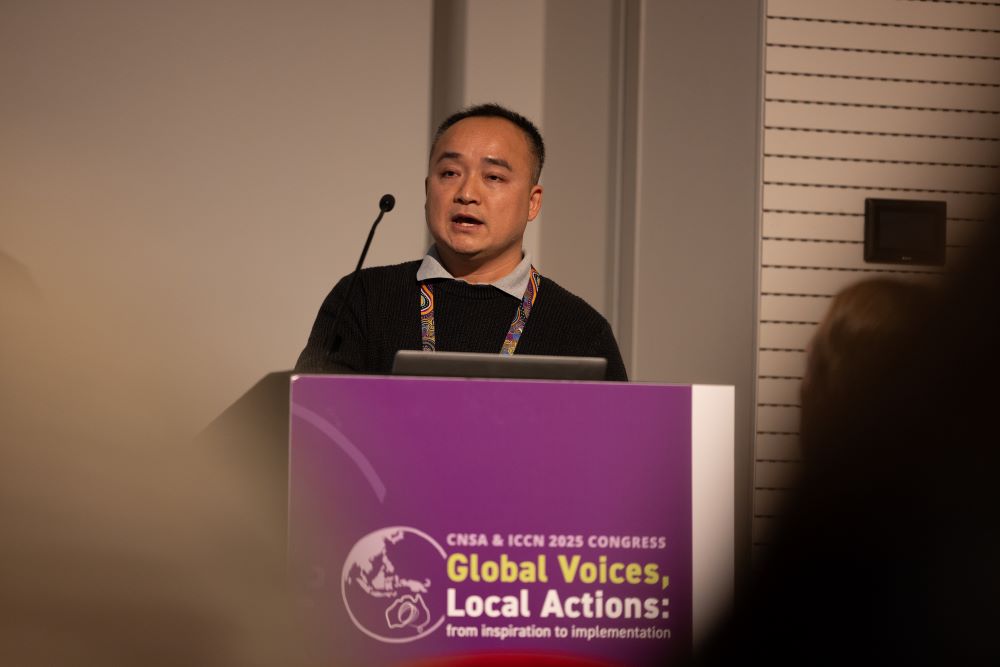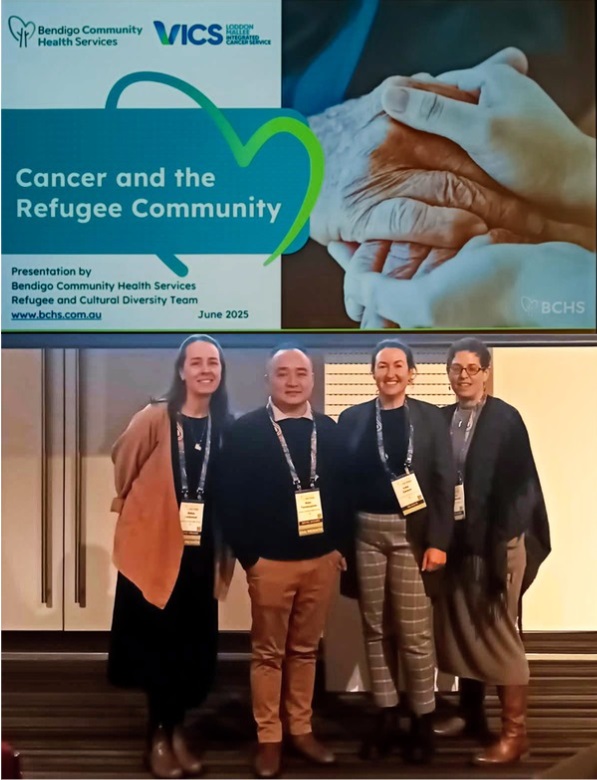The cancer journey is daunting for anyone. But even more so for people of refugee background. When Bendigo Community Health Services learnt of an increase in late-stage cancer diagnosis among the local Karen community, the service’s Cultural Diversity team took action.
For the past 18 months BCHS has been partnering with the Loddon Mallee Integrated Cancer Services (LMICS) to implement the State Government-funded Cancer Support for People of Refugee Background in Bendigo program.
Last month, this pioneering work was highlighted internationally at the CNSA/ICCN Cancer Nurse Congress. The congress theme of Global Voices, Local Actions was very fitting for the team’s presentation.
BCHS Cultural Diversity staff Abbie Lockwood, Lisa Carson and Nido Taveesupmai travelled to the Adelaide Convention Centre to deliver a 1.5-hour presentation on what the team has learnt about cancer and the refugee community and implications in clinical practice.

“It was a wonderful opportunity to not only share our work but to support other communities on how to better engage people of refugee background throughout the cancer journey,” Abbie (above) said.
“We had lots of questions, particularly from nurses working in areas that have high former refugee populations, like we do in Bendigo.
“In many cases, service providers have no guidance on how to make the cancer journey easier for those communities, so we were thrilled to share our work.”
The presentation focused on the barriers to care, and how health providers can best overcome them.

Lisa (above), who also works as a cancer nurse, said to wind back the concerning instances of diagnosis, there is a need to increase knowledge of and access to culturally-safe cancer prevention, screening, treatment and care.
“Plus, we need to increase people’s confidence to access services,” she said.
“Feeling safe in the space before getting into the details about the cancer may be the difference between someone engaging or not.”

Nido (above) said BCHS, together with LMICS, has worked with the local communities, cancer service providers, cancer peak bodies and content experts to develop a wide range of interventions. These include the development of cancer-related resources in language which dispel fears, myths and barriers to accessing care.
He said barriers can include the lasting impacts of trauma, limited knowledge of anatomy and complex health systems.
“We have been working on providing education for health care providers,” he said.
“This could be through understanding the refugee journey and through working with translators, but ultimately through always keeping the person at the centre of their cancer journey.
“We have also developed education sessions for the community, to increase their knowledge of the cancer services available to them.”
The team thanked Monita Mascitti-Meuter, St Vincent’s Inclusion Diversity Equity Lead, for presenting alongside them on the hospital’s Talk To Me app, a free language tool that supports communication in 18 languages, for interactions in-between those times an interpreter would be used. As part of this project, the app was recently expanded to include a category for cancer care phrases, as well as Karen and Dari languages.
The congress presentation was also a chance to share some of the tools and resources the team has developed for supporting diverse patients. These include booklets explaining chemotherapy and radiotherapy in the Karen and Dari languages, as well as in simple English.
Anyone can access these on the BCHS website resources page. Simply search for the topic ‘Cancer’.
Abbie, Nido and Lisa are pictured here with Monita Mascitti-Meuter.

